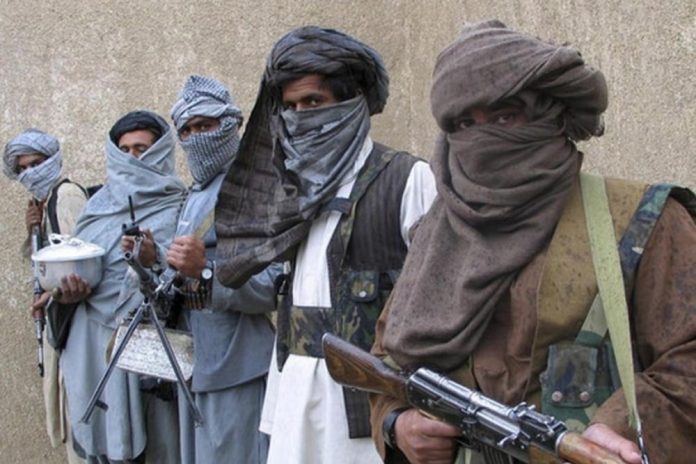The UN-banned Pakistani terrorist group Jaish-e-Mohammed (JeM) has been seen openly raising funds in Peshawar, according to several accounts in the presence of security personnel. Shaukat Ali Kashmiri the exiled leader and founder of the United Kashmir People’s National Party (UKPNP) tweeted, “open fund-raising by banned terrorist outfit Jaish-e-Mohammed (JeM) in Peshawar. Pakistan has raised concerns about the resurgence of extremist groups in the country. The group is responsible for several terrorist attacks”.
The JEM re-emerged last year after the relaxation of the Financial Action Task Force (FATF). They are overtly supported by Pakistan’s security forces. The global watchdog on the financing of terrorism, FATF, announced in October 2022 to remove Pakistan from its grey list, saying that the country has implemented its action plan against money laundering and terrorist financing. Pakistan had been on FATF’s grey list since June 2018.
Jaish’s fund raising is not limited to Peshawar but is also seen in Pakistan’s Punjab, Pakistan-occupied Kashmir and other areas. Thousands of users on Twitter who witnessed it, were seen discussing the incident on the social media platform. One of them deactivated his account after the tweets went viral.A Twitter user, Asif Afridi, narrated his experience during Eid prayers where he saw members of the banned outfit openly collecting funds in the presence of security personnel in Peshawar.He said, “Members of a banned organization were openly collecting money in Peshawar in the presence of security personnel. My father, my brother and I (six members in total) were there to offer Eid prayers.”
Another Twitter user Ehsanullah Khan Jadoon expressed his disappointment saying that such fundraising is common in Pakistan. “It is very unusual for someone to stand up after prayers and openly ask for funds to wage jihad in Palestine and Kashmir,” he said. “He was often seen in our mosque in Karachi”.
The ease with which these groups can openly raise funds raises concerns about the government’s ability to crack down on terrorist activities.
It has been 14 years since the Pakistan-sponsored terrorist attack on Mumbai. Evidence of Pakistani links behind the three-day bloodshed in Mumbai was in front of everyone. Notably, Pakistan has chosen to ignore India’s pleas over the past 14 years to bring the perpetrators of this act to justice.
FATF should continue to pressurize the country as it uses only symbolic actions to curb terrorist financing. The country was included in the grey list at the FATF plenary meeting in Paris in June 2018.
The name of Pakistan was included in this list for the third time. Pakistan was previously on the FATF grey list between 2008-2010 and 2012-2015 and was removed from the list in February 2015. Islamabad may not accept that it is systematically supporting terrorist organisations, but uses loopholes in the system to support terrorists who not only engage in terrorism within Pakistan but also expand their terrorist activities in other countries such as India, as a clear case of Mumbai. Attacks in 2008, Pathankot and Uri attacks in 2016 and Pulwama in 2019 have also been reported by SSRI.
No concrete action has ever been taken against those involved in and financing the terror attacks in Mumbai, such as Lashkar-e-Taiba (LeT), leaders like Hafiz Saeed, Zakir Rehman Lakhvi and Sajid Mir. No action was taken in the case, perhaps because Hafiz had support in the country. After being accused of involvement in the Mumbai terror attacks, Hafiz organized a rally in Islamabad in September 2013, against India used inflammatory language, even as the US announced a US$10 million reward for information on Hafiz.

